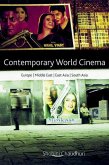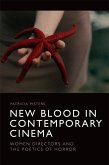A ground-breaking comparative analysis of cinematic images of atrocity, combining critical perspectives on contemporary film and human rights.A few days after 9/11, US Vice-President Dick Cheney invoked the need for the USA to work 'the dark side' in its global 'War on Terror'. Cinema of the Dark Side explores how contemporary cinema treats state-sponsored atrocity, evoking multiple landscapes of state terror. Investigating the ethical potential of cinematic atrocity images, this book argues that while films help to create and confirm normative perceptions about atrocities, they can also disrupt those perceptions and build alternative ones. Asserting a crucial distinction between morality and ethics, it proposes a new conceptualisation of human rights cinema, one that repositions human rights morality within an ethical framework that reflects upon the causes and contexts of violence. It builds upon theories of embodied perception to offer a new perspective on the ethics of spectatorship, providing readers with fresh insights into how we respond to atrocity images and the ethical issues at stake.Covering a diverse spectrum of 21st century cinema, this book deals with documentary and fictional representations of atrocity such as state-sanctioned torture, genocide, enforced disappearance, deportation, and apartheid. It features close analysis of contemporary films, including Zero Dark Thirty, Standard Operating Procedure, Hotel Rwanda, Sometimes in April, Nostalgia for the Light, Chronicle of an Escape, Children of Men, District 9, Waltz With Bashir, and Paradise Now.
Dieser Download kann aus rechtlichen Gründen nur mit Rechnungsadresse in A, B, BG, CY, CZ, D, DK, EW, E, FIN, F, GR, HR, H, IRL, I, LT, L, LR, M, NL, PL, P, R, S, SLO, SK ausgeliefert werden.









